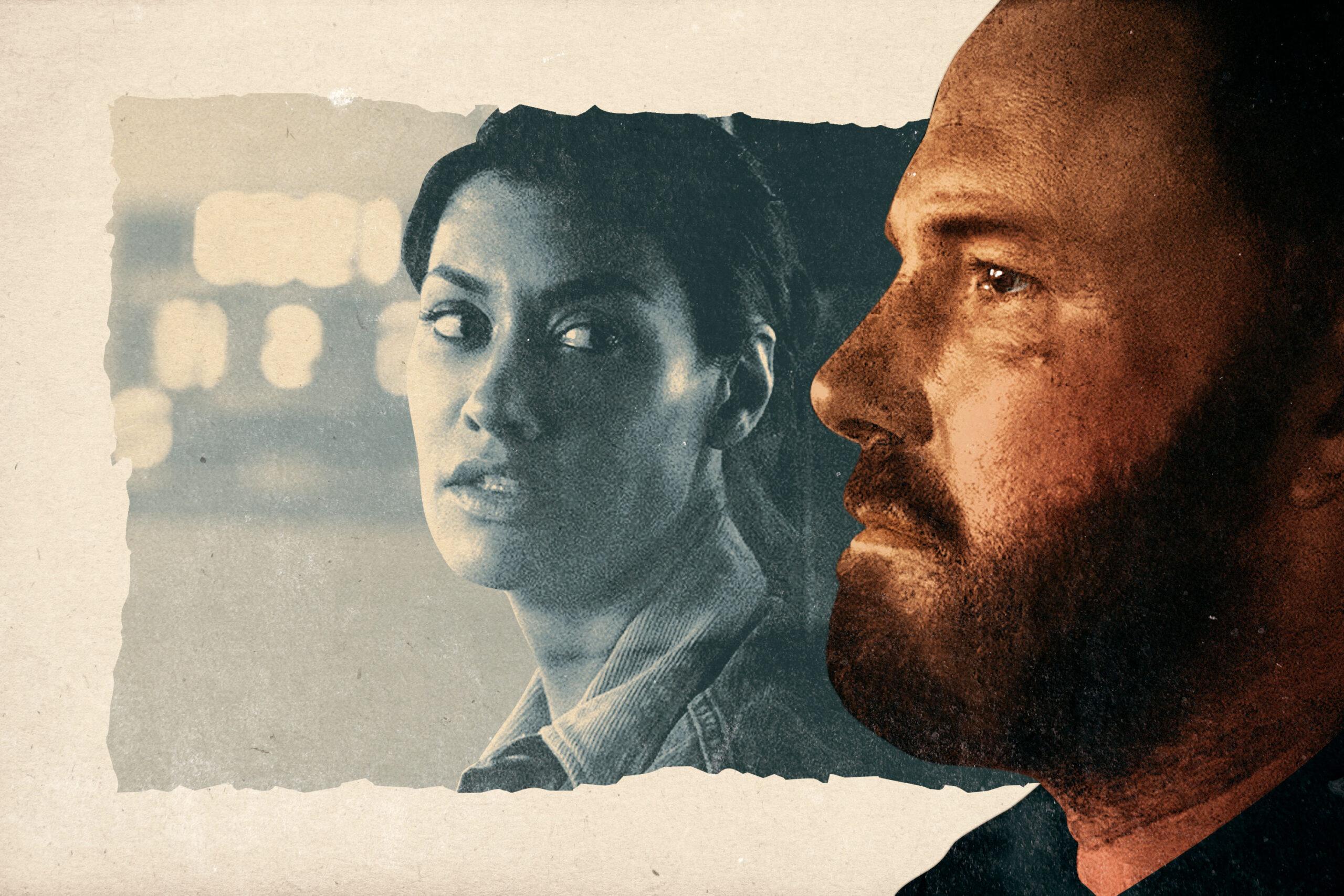
“Every time you say the word pain, your face changes,” says Diane Sawyer to Ben Affleck during a somber mid-February Good Morning America interview. “What’s it do?” he asks, mugging a little, screwing his eyes and mouth shut in a painful attempt at silliness. “It—you go somewhere,” she replies, undeterred, somber still. And once again, one of the biggest and most troubled movie stars of his generation dutifully shifts into confessional mode: “It’s very painful. Divorce is very painful, and alcoholism is very painful. They just are.”
Anyway, go see the new Ben Affleck movie! It’s out Friday, in theaters and everything, and it’s called The Way Back, and it’s about a washed-up high school basketball star coaching his alma mater while grappling with substance-abuse issues and a broken marriage. It turns out there are quite a few real-life parallels between the star and his character, which has in turn made that star’s modest but quite striking recent press tour a discomforting spectacle.
“So Jack Cunningham battles alcoholism, and he’s coaching this young high school basketball team,” begins HLN’s Melissa Knowles during another probing mid-February interview. “He’s a man whose family is falling apart. What drew you to this role right now?”
“Uh, yeah,” Affleck’s answer begins, before describing The Way Back simply as “a real story about a real person that I can identify with that has real issues who overcomes them.”
“You talked about identifying with your character,” Knowles continues. “Could Jack’s name be ‘Ben’?”
“Uh, no,” Affleck’s answer begins. He tries a little silliness: “I’m a very different guy. He was definitely a better basketball player.” But quickly, it’s back to confessional mode yet again, back to acknowledging that for this movie’s purposes, the ever-blurrier line between the fictional Jack and the painfully non-fictional Ben is a feature, not a bug. “I am an alcoholic, a recovering alcoholic,” one of the biggest and most troubled movie stars of his generation allows. “He is, too.”
Affleck’s fraught personal and professional recovery, his constant dizzying loop of setback and comeback, has long dominated his art. When Argo won Best Picture at the 2013 Oscars, there he stood, the film’s triumphant and suddenly motor-mouthed director/star, describing his marriage to Jennifer Garner as “work, but the best kind of work” and exorcising his early-2000s filmography’s various demons, from Gigli to Daredevil to Paycheck. (Those were all just in 2003, actually. What a career.) When that plane took off at Argo’s dramatic conclusion, so, too, once again, did he. Comeback achieved.
And now, seven years later, he seeks to exorcise his mid-2010s filmography’s various demons, from Batman v Superman: Dawn of Justice to Justice League, via the far more modest They Don’t Make Movies Like This Anymore melodramatic charms of The Way Back. And thus he’s dutifully promoting it by discussing the painful dissolution of his marriage to Garner—and their three kids, and his TMZ-documented October relapse, and his back tattoo—with The New York Times’s Brooks Barnes.
“The biggest regret of my life is this divorce,” he continued, noticeably using the present tense. “Shame is really toxic. There is no positive byproduct of shame. It’s just stewing in a toxic, hideous feeling of low self-worth and self-loathing.”
The Way Back! In theaters Friday! Comeback desired! Notably using the present tense! Affleck, historically, makes a ton of movies, including a reported four in 2020 alone, starting with January’s wayward Netflix jam The Last Thing He Wanted. That’s the one directed by Dee Rees (great) and starring Anne Hathway (swell) in an adaptation of a Joan Didion novel (dope) with a result that, per Fortune’s Isaac Feldberg, “begins in a state of near-total incoherence and somehow meanders further from there, plunging into almost experimental territory with its choppily edited mess of ridiculous dialogue and hyper-dense plotting.” (Yikes.)
But of course every bad Ben Affleck movie is mere high-octane fuel for the excellent Ben Affleck comeback movie to come. Somewhere between 60 and 90 percent of his appeal in 2019’s far more beloved Netflix bro-jam Triple Frontier is that you totally buy him as a washed-up Delta Force vet turned terrible real-estate agent, pounding PBRs, struggling to connect with his teenage daughter, and timidly reuniting with his old buddies for One Last Job, only to transform into a reckless but totally awesome badass once the shit starts to go down. He’s back! Meaning Tom “Redfly” Davis, his character! Sure!
The Way Back is a far grimmer and less Metallica-and-helicopters-oriented spin on this sort of redemptive arc. Most of Affleck’s recent interviews end with him more or less spoiling the fact that this new movie climaxes with a wrenching breakdown in which he (meaning Jack Cunningham, his character in the movie) abjectly grovels at the feet of his ex-wife (meaning Janina Gavankar, who plays his ex-wife in the movie). “I failed you,” he (Jack) says. “I failed our marriage.” Even the film’s director, Gavin O’Connor, cops to the synergy: “It was startling and powerful,” he recalled in the Times, of Affleck’s real-life breakdown after the scene was over. “I think that was a very personal moment in the movie. I think that was him.” Yeah, got it.
And so now, every time an on-camera interviewer fishes for the autobiographical parallels here, Affleck’s face changes. “I know that sort of stands out,” he tells HLN’s Knowles. “To me, it feels like, I’m always a little bit like, ‘Yeah, I guess so.’” Sawyer admiringly hails him as part of “that new breed of Hollywood leading men” willing to discuss both their addictions and their ongoing recoveries, from Brad Pitt to Robert Downey Jr. to Bradley Cooper, whose gin-soaked performance in A Star Is Born is the best-case scenario for The Way Back, in terms of life informing Oscar-worthy art. But every press stop finds Affleck visibly or at least audibly torn by the prospect of selling his movie by selling his own abject drama. “In Armageddon, I tried to imagine what it would be like to be an oil driller in space,” he tells Knowles, through jovially gritted teeth. “That was difficult. This was less so.”
His Good Morning America chat with Sawyer is slicker but, in its own way, rougher: He’s been to rehab twice in the last three years, she notes, as the screen displays “Best Dad Ever”-type handmade cards from his kids. He talks about taking antidepressants (“They’re very helpful for me”), and not wanting to watch that TMZ relapse video (“I know what it looks like to be drunk; I don’t need to watch any more of it”), and how he’d “like to find some sort of sense of meaning and purpose.” He grovels; he self-deprecates. “Like I said, you look the same,” he tells his old friend Sawyer. “I’m—it’s quite visible.” He sheepishly waves a hand over his face. “Forty-seven. You can see. Not getting away with anything.”
No, he’s not. Throughout these chats you get flashes of the old, goofy, genially brash wunderkind who first came to Oscar glory alongside his genial old buddy Matt Damon via 1997’s Good Will Hunting. Sometimes, in fact, Affleck even gets to be your run-of-the-mill veteran movie star with a run-of-the-mill overstuffed filmography. “I’ve done 50 movies, almost—49 movies,” he tells Knowles. “There’s 10 that I would never like to think of again. There’s 20 that I think we succeeded in some places … and other ways we didn’t. And there’s about 10 movies that I’m really, really proud of.”
It is clear, genuinely, setting the usual promo-tour foofaraw aside, that The Way Back is one of those prideful 10, or could be, if this flick hits a certain box office threshold. So he’ll do the work, press his bruises for the cameras, provide affable A’s for the pointed Q’s, and cop to the fact that a grim addiction-recovery film originally titled The Has-Been cuts even closer to the bone than his usual. Because every time he says the word pain, he plainly hopes, the Rotten Tomatoes score changes.

